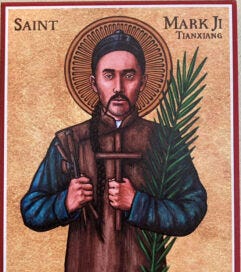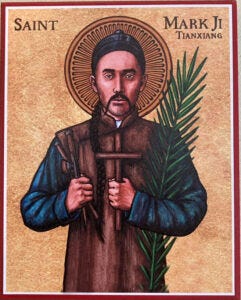Have you ever had an addiction? If you have, then you may be familiar with what I am about to say. If you have not, allow me to shed some light on addiction. Perhaps you have a sin that you confess almost every time you receive the Sacrament of Reconciliation— quickness to anger, uncharity, swearing, etc. Now imagine you have an obsessive compulsion to commit that sin; something in your brain needs you to commit that sin, it demands it of you, and as much as you would like to, you simply cannot keep yourself from that sin. You keep going to Confession because you are truly sorry for this vice; maybe if you are lucky, you go once a month, but more likely, you end up going once a week or more. Sometimes you cannot receive the Eucharist. Sometimes you wonder how God could love someone who keeps doing the same thing. Over. And over. And over.
Now, imagine you live in a time when people did not understand addiction. Imagine the priest who hears your Confession tells you to stop coming until you can clean up your act. You have no idea where to start, how to get better. You can no longer receive the Eucharist. What thoughts would enter your head? Would you start to believe that God truly does not love you? Would you be convinced you are going to hell? Or, would you continue to pray for freedom? Would you keep attending Mass even though you cannot receive? Would you still know that, truly, God still loves you and always will? This Saint chose the latter.
A Short History
During the 1800s, many European powers had trade routes to China for their valuable resources of silk, porcelain, and tea. Britain was one such power, and imported copious amounts of tea, which had grown popular with the British public. In order to pay for these imports, Britain began smuggling large amounts of opium into China from their colony in India.
Opium is a highly addictive narcotic that is extracted from the poppy plant, and it is from the same family of drugs as heroin. In the 1800s, it was commonly used for medical purposes as a painkiller, but it was also used for recreational purposes in opium dens.
Opium began to spread through China against the government’s wishes like a wildfire. Britain’s usage of opium as a means to control China led to tensions amongst the local population, which gave rise to nationalist groups like the Yihequan (“Righteous and Harmonious Fists” or “Boxers”) that eventually gained favor with the Chinese government. These “Boxers” led the Boxer Rebellion in 1900 in an attempt to remove all foreigners from China, including Christian converts and missionaries.
The Struggle
Our story picks up in 1834 in what is now Hebei, China. Ji Tianxiang was born into a Catholic family and given the Saint name Mark at his Baptism. Mark Ji grew up to be a well-respected doctor and leader in his Christian community. He provided care to the poor for free, attended Mass daily, and raised his two sons and six grandchildren to be devout Catholics as well.
In his early thirties, Mark contracted a painful stomach disease. As any doctor of the times would, he prescribed opium to himself as a cure. The cure worked, but in the process, Mark became addicted to opium, an ailment he would struggle with for thirty years before he was finally freed.
Mark turned to the one thing he knew could free him from his struggle: God. He received Confession and the Eucharist as often as he could and he constantly prayed for freedom, but he kept falling. Time and time again, he would end up in the opium dens. Every part of him wanted to stop, except one, and that one part was in the driver’s seat.
After a while, Mark’s priest told him he could no longer come to Confession. As terrible as this sounds, it was the right thing from the priest’s perspective. Unfortunately for Mark, addiction was simply not understood in those days. In fact, addiction did not become an officially recognized disease until 19871. Addiction was not understood to be a compulsion that acts against the will of the addicted, so to the priest, Mark just kept committing the same sin over and over again without changing; he was not truly sorry for his sins, which makes the Sacrament of Reconciliation invalid. Yet this was not the case; Mark was sorry for his sins, but he was unable to convince the priest of this.
It would be easy to become dejected and lose faith in this situation, but Mark did not. Although he could no longer receive the Eucharist, he still attended Mass every day, and he began to pray that he might be granted martyrdom, as he saw this as the only way he could reach Heaven. As this was happening, however, his community lost respect for him. Who was this man, to be guilty of such depravity, yet insist on being at Mass? What was the point of being there if he wasn’t even sorry for his sins? Why didn’t he just quit? But, he never quit. For thirty years, he lived in constant guilt and sorrow, humiliation and rejection, but he kept going to Mass, he kept praying, he kept believing.
Freedom
In 1900, when Mark was sixty-six years old, the Boxer Rebellion began. The Boxers had one goal: to eliminate foreign influence from China, and that included Christianity. During the duration of the Rebellion, some 32,000 Christians were killed for their faith.
During times like these, it would seem easier to hide one’s faith, if not reject it all together. For someone in Mark Ji’s position, it may even seem like common sense. Why pursue a faith that has given you nothing? Why continue to accept a faith that has seemingly rejected you? Why keep a faith that is now a threat to your life?
Truly, these questions might seem reasonable given the circumstances, yet they were not questions that Mark Ji asked. He knew his answers to these questions well before the persecution began. He knew the only path forward was to persevere in the faith and in his struggle; liberation was on the horizon.
On July 7, 1900, Mark Ji and his family were arrested. After they refused to reject their Catholic faith, they were taken to be executed. While they were walking towards their deaths, one of Mark’s grandsons asked where they were going; Mark told him, “We’re going home.”
Mark begged their executioners to kill him last, so that he would be the only one to die alone. One by one, he watched his two sons, their wives, and his six grandchildren be beheaded. As they were led to the executioner, right up until the sword came down, he comforted them all. When it came time for Mark to be executed, he sang the Litany of the Blessed Virgin until the moment of his death.2
Mark Ji’s prayers were answered: he was a martyr. Not only was he a martyr, but he was also freed from his addiction. It may seem strange that God would allow such a pious man to struggle for so long with an addiction, but it was through that addiction that St. Mark Ji was sanctified. Yes, he was addicted to opium and lived with this addiction for most of his life, but through it all, he chose God. Every time he fell, he got back on his feet again, even when he could no longer be absolved of his sins. Would you have the same relentless faith if you were in St. Mark Ji’s position? Would you be able to choose God even when you have a compulsion not to? Do you choose God now, without that kind of compulsion?
Perhaps it is hard to imagine what you would do if you were in St. Mark’s position. Fortunately for us today, we have ways of overcoming addiction in this life.3 If you have an addiction, your confessor will not tell you to stop coming to Confession. So ask yourself the last question. Do you choose God now? Amidst all your troubles, your anxieties, your sins, can you make a conscious choice to always turn towards your Creator and beg Him for help?
May God’s peace be upon you always.
I wanted to include a list of resources for addiction recovery. If you personally struggle, or you know someone who does, I implore you to look into these resources and ask God for help. Whether it takes 12 steps or martyrdom, freedom is possible, and so is Heaven. Recovery Resources




